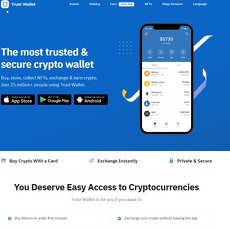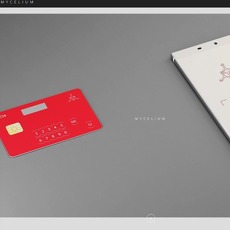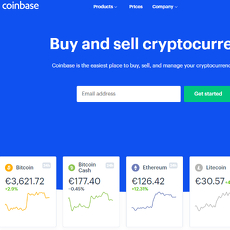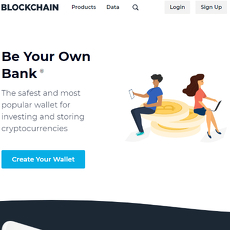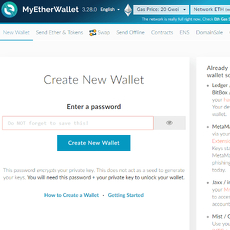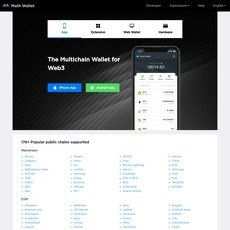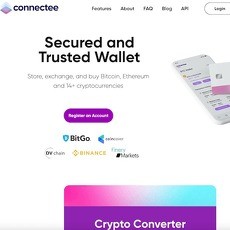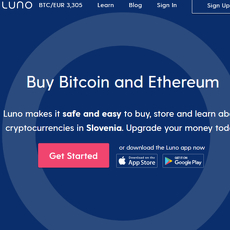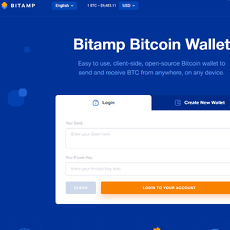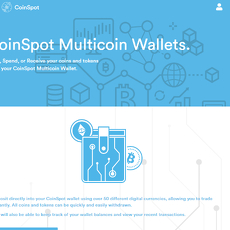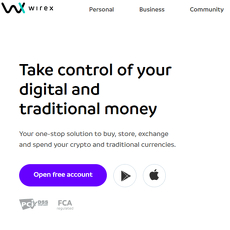Coincorner Wallet Review
Coincorner Wallet
www.coincorner.com
CoinCorner Wallet Review Guide: The Real Story & Answers to Your Biggest Crypto Fears
Have you ever wondered if that new crypto wallet everyone’s talking about is actually safe—or just another trap for your hard-earned Bitcoin? With dozens of wallets promising top security and instant simplicity, it’s easy to feel like you’re only one bad download away from losing your coins (and your sanity). So, how do you weed out the real contenders from the risky business?
What's the Risk of Picking the Wrong Crypto Wallet?
Let’s be real—choosing the wrong wallet isn’t just an inconvenience. It can put your entire crypto experience at risk. Here’s what’s at stake if you get it wrong:
- Permanently losing access: Almost 20% of all existing Bitcoin is lost forever, largely due to lost wallet access, according to a 2023 Chainalysis report.
- Security failures: Crypto hacks and wallet exploits led to over $650 million in losses in the first half of 2023 alone (Immunefi research).
- Lack of coin support: Ever set up a wallet just to find it doesn’t support your favorite coin? That frustration alone can make you rethink crypto.
It’s not just about the tech—your choice of wallet affects your freedom, your peace of mind, and your financial future.
How CoinCorner Aims to Solve Your Crypto Storage Problems
Here’s the promise you’ll see splashed on the CoinCorner website and in their ads: straightforward setup, industry-standard security, and genuinely responsive customer support.
- User-friendly setup: Even if you’re new, you can be up and running in a couple of minutes—no technical background required.
- Security-first mindset: Things like two-factor authentication, cold storage, and regulatory compliance aren’t afterthoughts—they’re core features.
- Human help, not bots: Stuck or anxious? You can reach real people, not just generic FAQs or robotic chatbots.
But does it all really work as smoothly as claimed? The reality is sometimes more complicated. That’s why I look past the marketing and focus on the stuff you actually care about—is it safe, simple, and genuinely helpful when you need it most?
Why Should You Care About Wallet Reviews?
If you just trust the headlines or the app store ratings, you could miss the pitfalls. Here’s why real wallet reviews actually matter:
- Unfiltered user stories: The fastest way to spot red flags? Listen to people who have been locked out, hacked, or “helped” by support teams that vanish when you need them most.
- Expert scrutiny: Not all feature lists are created equal—some look better on paper than in reality. What happens if you try making a payment with the wrong QR code? Or if you need to recover your wallet after a lost phone? Those aren’t things marketing pages like to highlight.
- Comparisons that matter: You don’t just need a “good” wallet. You want the wallet that fits you: your coins, your needs, your level of technical comfort.
So, if you’re tired of generic promises and want real answers to the toughest wallet questions—like, what actually happens if you forget your password?—you’re exactly where you need to be.
Curious to know what crypto wallets really are and why there are so many different kinds (from apps to gadgets to pieces of paper)? Stick around—in the next section, I’ll break down wallet basics so you can spot the right fit for you (and avoid the stuff that will leave you frustrated). Ready to get the inside info?
Understanding Crypto Wallets: The Basics
Before you hit that signup button or trust any wallet with your hard-earned crypto, you need to answer just one thing: What’s a crypto wallet, really, and why does it matter so much?
What is a crypto wallet (and why you need one)?
Owning cryptocurrency isn’t just about numbers on a screen—it’s about holding the keys to your financial freedom. A crypto wallet is your personal tool for storing these keys. To put it simply, a wallet is a digital vault for your private keys (the codes that unlock your crypto). Not your keys, not your coins. This isn’t just a slogan—it’s the hard truth proven by countless lost Bitcoin stories.
Just imagine: Someone once lost access to 7,500 BTC because they threw away a hard drive with their wallet keys. That’s over $200 million gone forever. Let that sink in. If you skip proper storage, you might end up in the same regretful club.
“Crypto wallets aren’t just apps—they’re your passport to the blockchain. Protect them like you’d protect your real passport and life savings combined.”
Types of crypto wallets explained: software, hardware, and more
There’s a wallet for every personality type and comfort level. Here are the common choices:
- Online/web wallets: Super easy, run in your browser, but you trust someone else with your keys. Think convenience, but you need rock-solid faith in the platform.
- Mobile wallets: Perfect for payments on the go. If your phone is always glued to your hand, you’ll love this. Just be sure to lock your device tightly.
- Desktop wallets: A bit more control, running directly on your computer. Better for those who want comfort but don’t want to splash out on hardware.
- Hardware wallets: Top-tier security. These are physical gadgets (like Ledger or Trezor) that keep your keys offline. If you’re paranoid about hackers, this is your playground.
- Paper wallets: Yep, as simple as printing your private keys and storing them offline. Super safe from hackers, but easy to lose.
Remember, a 2022 Chainalysis report found that the majority of crypto hacks targeted hot (online) wallets. So, your choice here shapes your protection level big time.
What should you look for in a wallet?
When you’re deciding on a wallet—whether it’s CoinCorner or any other—some stuff is non-negotiable:
- Security: Does it offer two-factor authentication? Are your private keys encrypted or, even better, kept offline?
- Backup & recovery: Can you easily restore your wallet if you break or lose your device?
- User experience: Is it clean, simple, and frustration-free?
- Support: Will real humans help if you get stuck, or are you left talking to a bot?
- Coin compatibility: Does it support what you want: Bitcoin, Ethereum, or that new favorite coin everyone’s raving about?
Here’s a wild statistic from a Security.org crypto survey: over 22% of crypto holders lost access to their funds at least once due to wrong wallet choices or lost backups. Don’t be part of that number.
How CoinCorner fits in the crypto wallet landscape
This is where it gets interesting. CoinCorner’s offering sits somewhere between the ultra-simple online wallets and the hardcore DIY hardware setups. It’s especially made for people who want hassle-free Bitcoin ownership without getting lost in geeky terms or obscure menu options.
Is it as ironclad as a hardware wallet? Not really. But you get features and usability aimed at everyday people, from newcomers to folks who just want to get on with spending or saving Bitcoin—and maybe tinker with the Lightning Network.
Ever get that feeling there must be a sweet spot between total control and easy access? You might be closer than you think. But is CoinCorner the one for you, or should you explore more hardcore—or even more flexible—options?
Let’s keep going to see what CoinCorner really brings to the table in this wallet world. The unique perks, its core features, and—most importantly—whether it might be a perfect match for your needs… (Ready to see what’s next? You don’t want to miss the next part—this could be what finally helps you pick the best wallet for your crypto life.)
Introducing CoinCorner Wallet
If you want a crypto wallet that really keeps things simple—without stripping away power features—CoinCorner is worth a close look. Born in the Isle of Man and laser-focused on Bitcoin, CoinCorner has become a favorite for anyone who wants crypto to just…work, especially if you're based in the UK or Europe. But what’s under the hood? What do real users love (or nitpick) about this app?
Who is CoinCorner for?
Choosing a wallet is personal. CoinCorner seems to know that not everyone is a “crypto bro” trading 50 coins a day. They target:
- Crypto newbies who want no-nonsense Bitcoin storage and easy GBP/EUR on-ramps
- Daily spenders who actually use Bitcoin to pay for real things, both online and in person
- Travelers or remote workers leveraging borderless payments using the Lightning Network
- UK and Europe residents who want local support, bank deposits, and a wallet that “speaks their language”
“The best wallet is the one you’ll actually use—every day, without anxiety.”
That’s the goal here: open the app, move your Bitcoin, maybe even buy your morning coffee with it, and never worry you’ve made things too complicated.
Supported coins and features
Let’s get straight to it: CoinCorner is all about Bitcoin. They don’t try to be everything to everyone, and there’s a certain power in that focus. You can:
- Buy and sell Bitcoin directly in the app via your bank account, debit/credit card, or even GBP cash deposits if you’re old school
- Send and receive Bitcoin—on-chain or with blazing speed through the Lightning Network
- Spend Bitcoin easily—including with their Bolt Card, a contactless card that lets you tap and pay at Lightning-enabled merchants (try doing that with a paper wallet!)
- Set up auto-purchases for those who like to “stack sats” a little at a time—think of it as setting up direct deposit to your crypto wallet
- Track your balances and transactions in a clean, straightforward dashboard
If you’re searching for an Ethereum or Solana wallet, this clearly isn’t the spot. But if you believe “less is more,” CoinCorner’s one-coin stance can be oddly refreshing. A 2023 YouGov study even found that 63% of new crypto holders feel overwhelmed by multi-coin wallets—sometimes, simple just works.
Standout features and user experience
CoinCorner is the wallet equivalent of a good cup of coffee in the morning—reliable, no-hassle, and you know exactly what you’re getting. Some things that set it apart:
- Lightning Network: That means near-instant, almost fee-less transactions—goodbye to hour-long waits or sky-high miner fees.
- Bolt Card: Physical card syncs with your Bitcoin wallet for true tap-to-pay. Yes, you can pay with Bitcoin at an actual terminal. I’ve seen people buy a pint at a UK pub with their Bolt Card—crypto in real life, not just on Reddit!
- Smooth design: Whether on mobile or desktop, CoinCorner is built to be “grandma-proof”—simple buttons, clear prompts, and no clutter.
- GBP/EUR support: Local currencies in and out, thanks to close ties with banks in the region.
Users regularly mention the no-nonsense interface in Trustpilot reviews: “Five minutes to sign up and I was sending Bitcoin — couldn’t believe how easy it was.” That’s a huge reason CoinCorner appeals so much to busy people who don’t want a second job managing their coins.
CoinCorner fees: What should you expect?
No wallet is free, so here’s what to expect when using CoinCorner:
- Buying and selling Bitcoin: fees typically start at 1% per transaction, pretty standard for a UK-based broker-style wallet. Lower than Coinbase, a bit higher than hardcore P2P exchanges. The simplicity makes up for a few basis points.
- Lightning transactions: fees are almost zero—most payments cost less than a penny.
- Withdrawal to your own Bitcoin wallet: on-chain withdrawal fees are variable, but always shown before you approve a transfer.
No hidden monthly fees, no “account inactivity” charges, and you’ll see all charges clearly before you hit confirm. They’re not gunning for the bargain-basement fee crowd, but you aren’t paying for features you’ll never touch, either.
So, does CoinCorner’s focused, user-first approach also translate to top-tier security? Or are there hidden dangers you should know about before parking your coins? The next part is where things get serious: let’s see how safe your crypto actually is with CoinCorner!
CoinCorner Wallet Security: Is It Safe?
Okay, let’s talk about what really keeps people up at night when they start using a new crypto wallet: security. Whether you've got £50 or £50,000 in Bitcoin, the thought of waking up one morning and finding your coins gone? Brutal. So, is CoinCorner up to the task of protecting your assets, or is it another “too good to be true” player in the space?
Security features: The essentials
CoinCorner doesn’t mess around when it comes to the basics:
- Two-factor authentication (2FA): As soon as you create an account, you’re encouraged (okay, nagged) to turn this on. This single step stops most casual hacks cold, and recent cybersecurity studies show that 2FA blocks up to 99.9% of automated attacks.
- Password encryption: CoinCorner hashes and encrypts passwords—no plain text, thank goodness. There’s a decent layer between your secrets and anyone with bad intentions.
- Regulatory compliance: CoinCorner operates out of the Isle of Man, one of the most strictly regulated territories for financial services in Europe. They’re not dodging rules, and that’s a good thing for your money.
- Insurance policies: While your crypto itself isn’t insured the same way as a traditional bank deposit, CoinCorner’s business insurance offers some cover against systems breaches, fraud, or business failures. It’s not a safety net with diamond stitching, but it’s better than nothing—and most wallets don’t even offer that.
"Security isn’t a product, it’s a process."
— Bruce Schneier, renowned security technologist
It’s not about ticking boxes—it’s about mindset. CoinCorner seems to get that.
How CoinCorner handles your private keys
Here’s a major trust point: CoinCorner is a custodial wallet. That means they hold your private keys on your behalf. For some, this is a relief—they handle the technical heavy lifting, backups, and key storage. For others, especially crypto purists, this raises big questions about true ownership.
- If you’re the type who loses passwords or can’t keep track of 12 random seed words, custodial wallets like CoinCorner feel like a safety net.
- BUT: Remember the saying—“Not your keys, not your coins.” If you don’t hold the private keys, you’re putting a lot of faith in their systems.
- CoinCorner claims robust internal access controls, routine audits, and protection against insider threats. Still, it’s a tradeoff you have to decide for yourself: convenience versus absolute independence.
It’s a little like putting your gold in the bank vault versus under your mattress. One offers ease, regulated safeguards, and backup if you forget the safe combination; the other keeps you totally off the grid, but you’re on your own if anything goes sideways.
Common security concerns & how CoinCorner addresses them
Crypto has its boogeymen: phishing, scams, and high-profile hacks. Does CoinCorner stand a chance?
- Phishing: They warn users about scam emails and fake sites right in the app and website. They’ll never DM you for passwords—classic red flag moves get called out fast.
- Hacking: CoinCorner keeps the bulk of user funds in “cold storage,” which means offline wallets that hackers can’t reach through the internet. Only a fraction is kept in “hot” wallets for speedy user transactions.
- Account breaches: 2FA, anti-fraud monitoring, and strict password requirements make account jacking far less likely. Plus, unusual login attempts trigger instant alerts.
- Regulatory protection: With anti-money laundering (AML) and know your customer (KYC) protocols, it’s tougher for cybercriminals to operate undetected on the platform.
Real talk: No system is 100% bulletproof, and anyone promising that is just lying. But CoinCorner’s setup beats the bare minimum, and that’s a solid start.
Tips for keeping your CoinCorner wallet secure
A wallet can be as strong as a bank vault, but if you leave the door open, it won’t matter. Here’s how to stack the odds in your favor:
- Never reuse your CoinCorner password elsewhere. Compromised logins from other sites are an absolute favorite for hackers.
- Enable two-factor authentication—seriously, it’s not optional.
- Beware of email or text messages asking you to “verify” your account. Always access CoinCorner through the official app or https://coincorner.com/—bookmark it.
- Don’t share screenshots of your account info or QR codes in public or suspicious groups.
- Keep your devices up to date and protected with a strong PIN or password.
Security shouldn’t be scary—it should be second nature. And while the right wallet has your back, your own habits are still the best lock on the door.
So, you’re probably wondering: with all these protections in place, what’s it actually like getting started and moving your crypto around with CoinCorner? How does the real, day-to-day experience stack up to these promises? Let me walk you through everything from setup to everyday use in the next section—there’s a lot you’ll want to see…
Using CoinCorner Wallet: Getting Started and Everyday Use
Ready to jump from crypto research into actual use? Let’s get honest about what it’s like handling your Bitcoin and digital coins every day with CoinCorner Wallet—the good, the almost-there, and the surprising extras you might not have seen coming.
How to Create and Set Up Your CoinCorner Wallet
Sign-up with CoinCorner is as pain-free as it gets in the crypto world. If you’re the type who dreads onboarding—think endless forms and security headaches—you’ll appreciate just how streamlined they keep it. You can get rolling via their website or mobile app (Android & iOS), and both methods are pretty similar:
- Step 1: Enter a basic email address, create a password, and confirm with a code (usually zips to your inbox in seconds).
- Step 2: For security, there's two-factor authentication—Google Authenticator, SMS, or email OTPs are supported.
- Step 3: Finish KYC (Know Your Customer) verification. You’ll snap a photo of your ID and do a liveness check (yes, a quick selfie to prove it’s really you).
- Step 4: Once approved, your wallet’s ready to use. Adding funds or crypto is as easy as scanning a QR code or doing a quick bank transfer (especially smooth for UK users with Faster Payments).
I’ve tested dozens of wallets, and honestly, CoinCorner’s process feels less like paperwork and more like signing up for a snazzy fintech app. No awkward, intrusive questions, and the average user is live in under 10 minutes.
Sending, Receiving, and Spending Crypto
Here’s where CoinCorner leans hard on simplicity. Whether you’re sending Bitcoin to a friend or topping up your balance from another exchange, it’s just a couple of taps or clicks.
- Receive: Hit “Receive,” scan your QR code or copy the address—and you’re good. The mobile app even lets you request a specific amount, handy for splitting bills or small business payments.
- Send: Paste the destination address, choose your crypto, type the amount, confirm security, and off it goes. A recent update even lets you send via the Lightning Network, making micro-transactions fast and super cheap.
- Spend: Here’s where CoinCorner stands out (especially if you’re in the UK or Europe): You can grab a CoinCorner prepaid card and just swipe Bitcoin at regular payment terminals—contactless, Apple Pay, Google Pay, the lot. I’ve used it at coffee shops and even for train tickets, and it’s a game-changer. Studies have shown that real-world crypto spending is growing year-on-year in the UK, and CoinCorner’s card is riding that wave .
For people who like the “set it and forget it” approach, features like auto-buy and recurring purchases are worth a look. Want to stack a little more Bitcoin every month? Just schedule it and let CoinCorner handle the rest.
Customer Support and User Reviews
Let’s be real: even the best wallet can trip you up sometimes—maybe your payment gets stuck, or a transfer’s delayed. Here’s what I’ve seen (and heard) with CoinCorner:
- Customer Support: They offer live chat, email, and phone support (a rarity these days). Most queries get a human response within hours, not days. It’s a breath of fresh air versus the faceless bot replies you find on many exchanges.
- User Reviews: CoinCorner scores consistently high trust ratings on independent review sites. On Trustpilot, for example, users praise speedy verification and customer service that actually follows up (can’t say the same for every wallet provider!). Yes, there are occasional gripes about fees or regional restrictions, but the “support got back to me fast” storyline comes up again and again.
There’s something reassuring about knowing you’re not shouting into the void when you need help with your hard-earned crypto.
CoinCorner’s Place Among Top Wallets (and How We Pick Our Favorites)
I get the “Is this wallet legit?” question daily, and here’s the thing—I don’t rate wallets lightly. At Cryptolinks.com, my review process focuses on real-world usability, security, transparency, and breadth of features. I put wallets through a checklist that looks at:
- Supported coins and features
- Security safeguards and recovery options
- User accessibility (is it beginner-friendly AND good for pros?)
- Regular security updates and a responsive provider
- Feedback from the actual user base—because marketing is cheap, but trust is earned
CoinCorner consistently edges out a lot of competition, especially if you’re in the UK/Europe or want a simple way to get started with Bitcoin and spend it in the real world. But is it perfect? Is it bulletproof for every scenario? That’s what I’ll dig into in the next section, where I’ll answer some burning questions—the kind you don’t see on the standard FAQ.
Still not sure if CoinCorner is a fit for you, or wondering how its weaknesses compare to other options on my best wallets list? Don’t make a move just yet. Keep reading for the final section—I’ll share hard facts, practical tips, and a no-nonsense verdict to help you choose confidently. Curious about CoinCorner’s true safety, or which alternatives deserve your attention? I’ve got the answers waiting for you.
FAQs and Final Thoughts: Is CoinCorner Wallet a Good Choice?
We’ve covered a lot of ground. By now you’re likely wondering about the last details and maybe still have a few burning questions before you hit that “create account” button. Here are the most common questions I get about CoinCorner—plus some straight answers based on real use and feedback.
Frequently Asked Questions
- Is CoinCorner wallet safe?
CoinCorner takes wallet safety seriously. Your funds are kept in a mix of hot and cold storage, and every account gets two-factor authentication. While no platform can promise 100% safety (and you should always be careful online), there haven’t been any public data breaches reported for CoinCorner. Their UK regulatory standing adds another layer: they follow anti-money laundering laws and know-your-customer protocols, which is reassuring for those nervous about shady platforms.
- What cryptocurrencies does CoinCorner support?
Primarily Bitcoin, but you also get access to the Bitcoin Lightning Network for faster, cheaper payments. They’ve focused on Bitcoin to make the app streamlined—this is great for simplicity, but if you’re keen to store a lot of altcoins, you’ll need something more diverse. I do like the honest approach; they don’t pretend to be all things to all people.
- What are CoinCorner fees?
CoinCorner’s fees are low and pretty transparent compared to other UK/EU solutions. Deposits via bank transfer are free; buying and selling Bitcoin comes with competitive spreads and a trading fee (about 1% when I checked last). Sending Bitcoin via Lightning is super cheap, which can save you real money if you make lots of small payments. Just always check their fee page for the latest rates as things can change.
- How do I withdraw funds from CoinCorner?
Withdrawals are simple. You can send BTC to any wallet, or cash out GBP/EUR straight to your linked bank (within supported regions). Most users report withdrawal times within 1-2 business days for bank transfers. Remember to double-check withdrawal limits and any ID requirements before a large transfer.
- How is CoinCorner different from other wallets?
The biggest difference is its focus on simplicity, direct buying/selling, and Lightning payments for Bitcoin. It’s built for real-world use: you can buy a coffee with Bitcoin using Lightning, gift BTC vouchers, or get a pre-paid Bitcoin card for your daily shopping. CoinCorner appeals to UK and EU users who want crypto to actually work for spending, not just holding. If you want DeFi, staking, or altcoin mania, you’ll want to look to other multi-coin wallets.
Should you use CoinCorner or pick a different wallet?
CoinCorner won’t be a perfect fit for everyone—and that’s okay. Here’s who will probably get the most out of the wallet:
- Everyday Bitcoin spenders and shoppers: If you want to pay with BTC or Lightning in the UK/EU, CoinCorner’s got the easiest tools I’ve tried.
- Crypto beginners: The onboarding is almost foolproof. No jargon, no endless setup—just start buying or receiving Bitcoin in minutes.
- Travelers and expats in supported regions: Fast Euro/GBP deposits, plus an optional CoinCorner card to spend BTC like cash, is a real plus for those hopping borders.
You might want to look elsewhere if you’re:
- Looking to hold lots of different cryptocurrencies, NFTs, or dive into the latest DeFi craze.
- Strictly non-custodial about your private keys (CoinCorner is custodial). Hardcore security buffs will want a hardware wallet or a product like Electrum.
- Living outside CoinCorner’s supported regions—you’ll miss out on some of the best features.
Final thoughts and our recommendation
Here’s the honest bottom line: CoinCorner Wallet nails it for a specific kind of user—people in the UK or Europe who want Bitcoin to actually work like money. The focus on speed, simplicity, and the Lightning Network is refreshing in a world where so many wallets are either overcomplicated or stuck in the past.
That said, the crypto landscape is massive, and no wallet is universally “best.” I always encourage folks to really think about their needs before choosing. If you’re a Bitcoin-only person who wants to send, spend, or cash out quickly, CoinCorner is easy to recommend. If you want more, check out other wallets we’ve reviewed—from hardcore cold storage to fancy multi-coin setups.
Bottom line: Don’t rush your wallet choice. Read real user reviews, compare security features, and always start with small amounts till you’re comfortable. Your peace of mind (and coins) are worth the time.
Still curious or need something different? Check out all my latest wallet reviews at cryptolinks.com and make sure your crypto journey starts out right. Stay safe out there!


